PROTECT ENVIRONMENTALISTS OP-ED
Our planet, their sacrifice: Ensuring safety for environmental defenders and activists
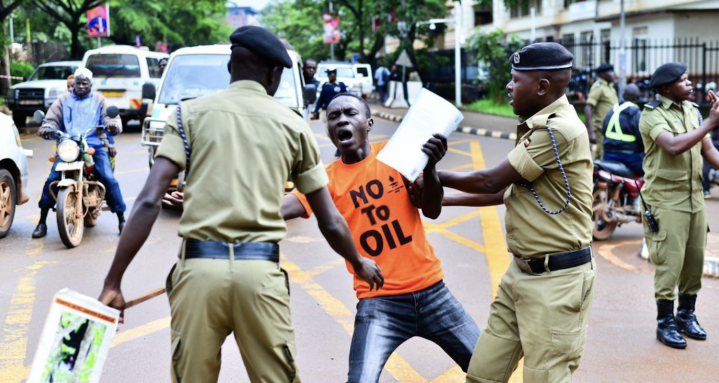
Environmental defenders and climate justice activists protect the rights of people, land, water, all living beings — and our climate, too. But increasingly around the world they are facing an assault on their rights and lives. In light of COP28 and beyond, governments, international organisations and media must prioritise the need for protection of environmental defenders, and work towards their safety as they tirelessly act to secure a just and liveable planet for us all.
Increasingly around the world, climate activists and environmental defenders – especially those in the Global South and on the frontlines – are being surveilled, harassed, attacked, imprisoned and killed.
According to Global Witness, 1,910 environmental defenders were killed between 2012 and 2022, with most murders going unpunished. Colombia, Brazil, Mexico, Honduras and the Philippines were the most deadly countries in 2022. The same can be said for environmental defenders across Africa who often face extreme risks in their fight for justice, and whose courage and resilience have been well documented.
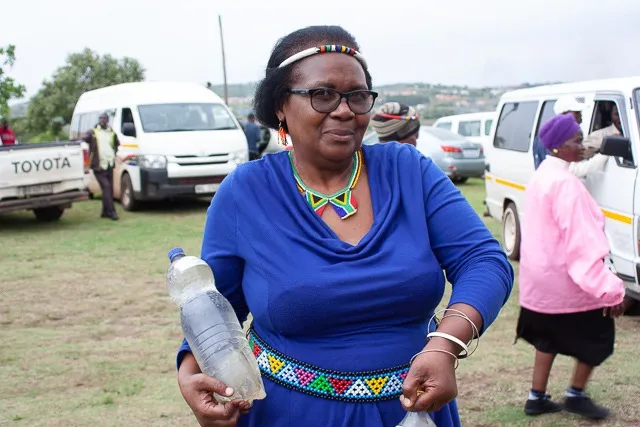
Community and environmental defender Mam’ Fikile Ntshangase was brutally assassinated. (Photo: Courtesy of groundWork)
This is not necessarily a new phenomenon. For example, in the 1980s and 1990s, Ken Saro-Wiwa led a peaceful movement to protect the environmental and human rights of the Ogoni people in Nigeria, whose oil-rich land was being exploited by multinational oil companies. He was sentenced to death in 1995. There is also a long-standing link between the rise of colonisation and capitalism which created massive human and environmental impacts as sacrifice zones were created for the sake of extractivism to benefit elite wealth.
Today, environmental and land defenders on the continent are still targeted by the sinister strong arm of fossil fuel and extractive industries for their opposition to projects which bring numerous social and environmental harms.
In South Africa, prominent community and environmental defenders, such as Sikhosiphi “Bazooka” Radebe and Mam’ Fikile Ntshangase, are among activists who have been targeted and brutally assassinated in front of their own young families in the past 10 years, while members of their respective communities continue to face violence and intimidation.
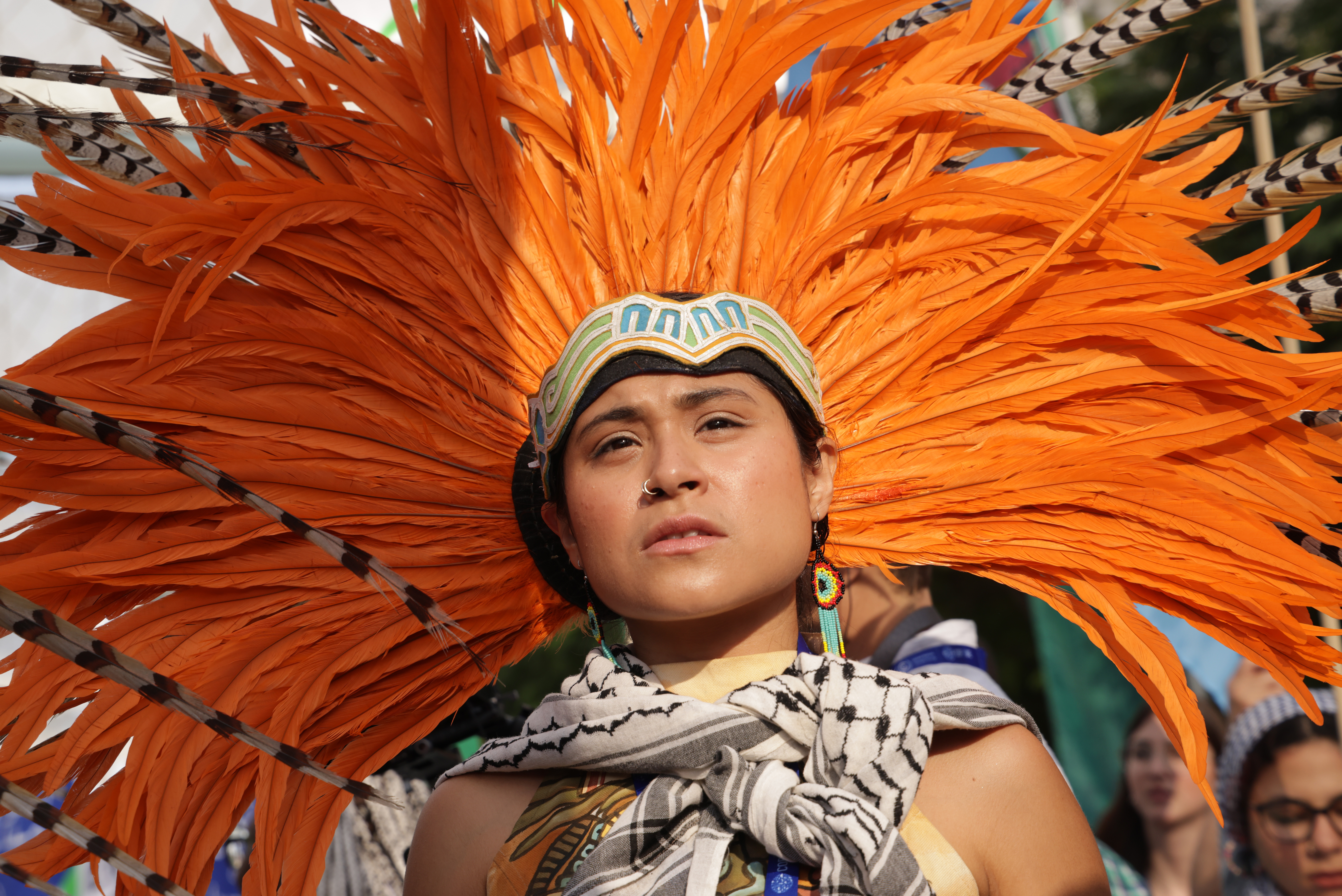
Activists, including a young indigenous woman from Mexico, prepare to march in protest on day nine of the COP28 Climate Conference in Dubai on 9 December 2023. (Photo: Sean Gallup / Getty Images)
Radebe was a dedicated environmental and indigenous rights activist who spent years opposing two major developments in the area of Xolobeni on the Wild Coast and Ntshangase was a grandmother and community leader in KwaZulu-Natal who was opposing the extension of a coal mine.
The killings of activists do not happen in isolation, but are situated on the extreme end of a concerning trend involving the widespread and ongoing silencing of activist and community voices and the denial of their human rights and basic freedoms.
In Uganda for example, voices of resistance to the destructive East African Crude Oil Pipeline project are routinely subjected to all manner of abuses at the hands of a repressive and oil-hungry regime. The pipeline has already displaced families and is set to displace more than 100,000 people. It will also pose significant risks to wildlife and natural systems while tipping the world closer to full-blown climate catastrophe by contributing an estimated 375 million metric tons of carbon to the atmosphere.
Ugandan civil society organisations that have voiced opposition to the project have had their offices raided and ransacked and some have even had their operating licences revoked. Community members who have, and continue to, resist their forced displacement through the land acquisition process of the project have been intimidated and coerced by the authorities. Activists who take to the streets in peaceful protest to assert themselves as legitimate stakeholders in this harmful project are routinely arrested and held in deplorable conditions.
Read more in Daily Maverick: Standard Bank still ‘comfortable’ about $120m investment in East African Crude Oil Pipeline while awaiting clarifications
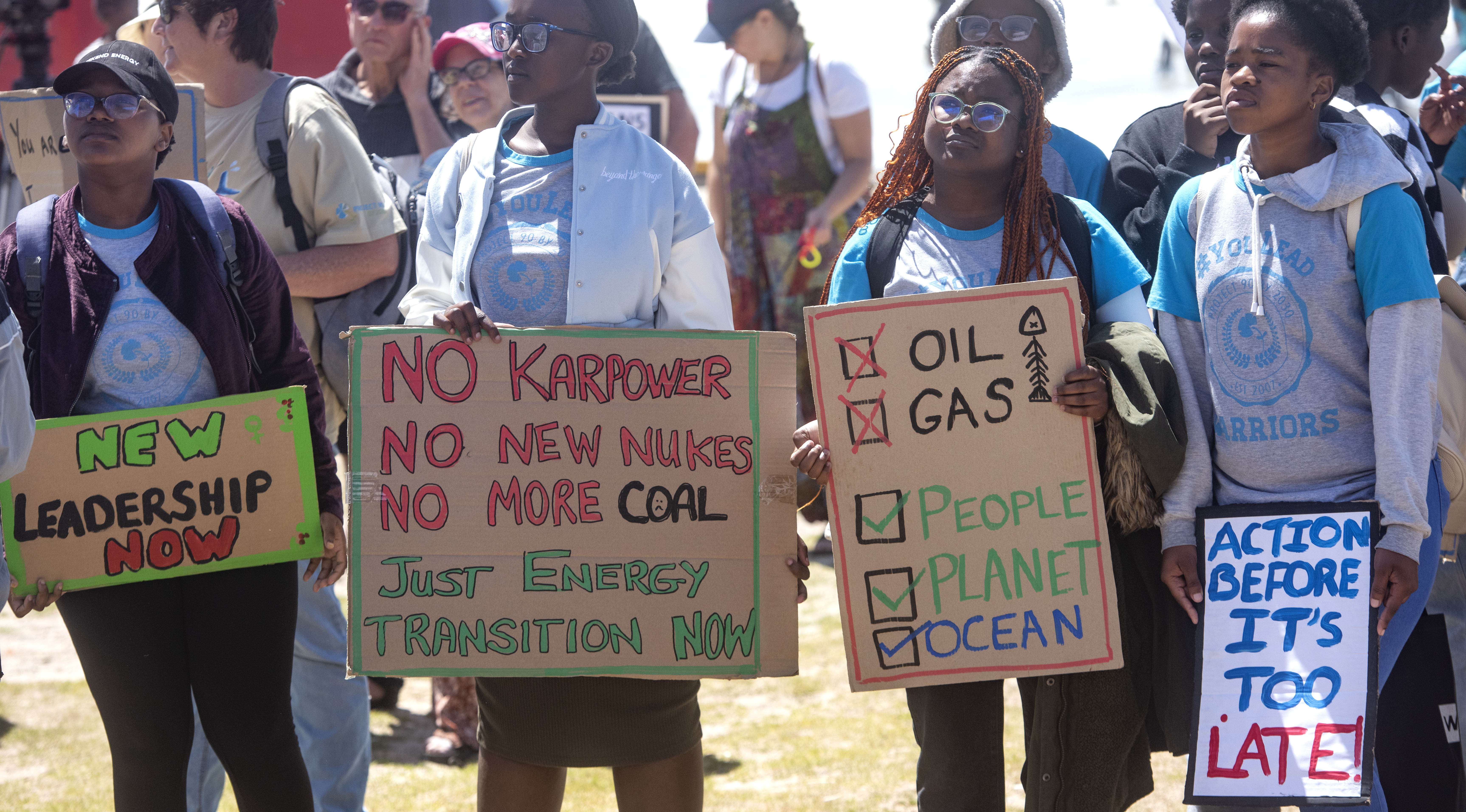
Protesters and activists during the call to action against fossil fuel exploration and extraction off the coast of South Africa at Muizenberg Beach in Cape Town on 9 December 2023. The protest was part of a countrywide protest on Global Day For Action on Climate Justice. (Photo: Gallo Images / Brenton Geach)
The most recent arrests include seven student activists who were detained on 24 November for peacefully petitioning the Ugandan Parliament against the pipeline and have since been remanded to the Luzira Maximum Prison after the state prosecutor failed to appear in court. On 8 December, the students appeared in court again and were further remanded for an additional 11 days until 19 December after the magistrate failed to appear in court.
It is also not just repressive regimes and state actors who are responsible for the violence to which defenders are subjected. The fossil fuel industry is known to protect its interests with a brutality that knows no bounds. Whether it is through bribery, co-option, direct intimidation, the employment of mercenary security personnel, or through calling in political favours – using police forces to serve as private armies to protect the interests of capital – multinational corporations are often directly involved in the violence upon which the fossil fuel industry has built its dystopian empire.
Global Witness has recently published an investigation in which they have presented evidence that TotalEnergies has been party to bullying and intimidation of communities affected by the East African Crude Oil Pipeline project in Uganda and Tanzania, with community members reportedly feeling pressured into compensation deals dispossessing them of their land. The investigation also found evidence that suggests that Total was in communication with Ugandan state authorities before threats and detentions of anti-oil campaigners and activists.
Even the financial institutions involved in some of the world’s most harmful fossil fuel projects are known to employ violent tactics to suppress the voices of communities and activists.
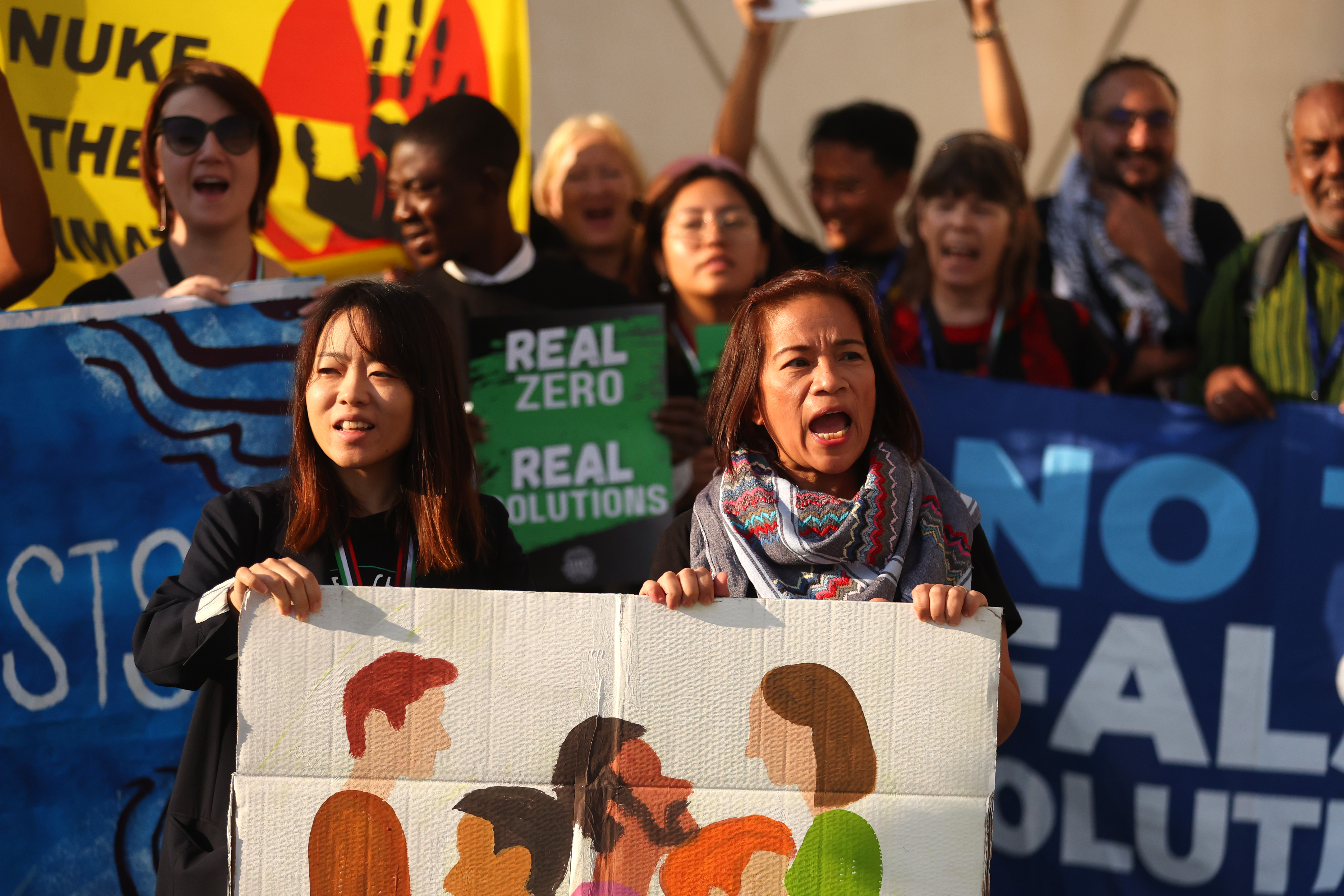
Activists protest on day eight of the COP28 Climate Conference in Dubai on 8 December 2023. (Photo: Francois Nel / Getty Images)
In September 2023 in South Africa, activists from Extinction Rebellion Gauteng, and allied groups, peacefully occupied the streets outside Standard Bank to demand a live debate with the bank, and for the bank to stop investing in fossil fuel projects such as the East African Crude Oil Pipeline. They were met with excessive force by private security and police services which also led to an unfair arrest of Angelo Doyle, an indigenous land defender from the Save Our Sacred Lands campaign.
These concerning trends are not limited to killings and arrests. For example, young people in the African Climate Alliance organisation and Activist Network have faced surveillance and sometimes intimidation when advocating for intersectional climate justice while demanding accountability from the fossil fuel industry. This will not stop activists from acting nor do we believe it should stop others from joining the struggle because the greater risk we all face collectively is far greater, and movements for change have always required a degree of risk and sacrifice.
World leaders convening in Dubai for COP28 need to act on our demands for these injustices and those responsible for them to be brought to book. We have said very clearly that there is no climate justice without human rights and so we need the lived experiences and the testimonies of our communities to be a central consideration in negotiating the character of a just transition.
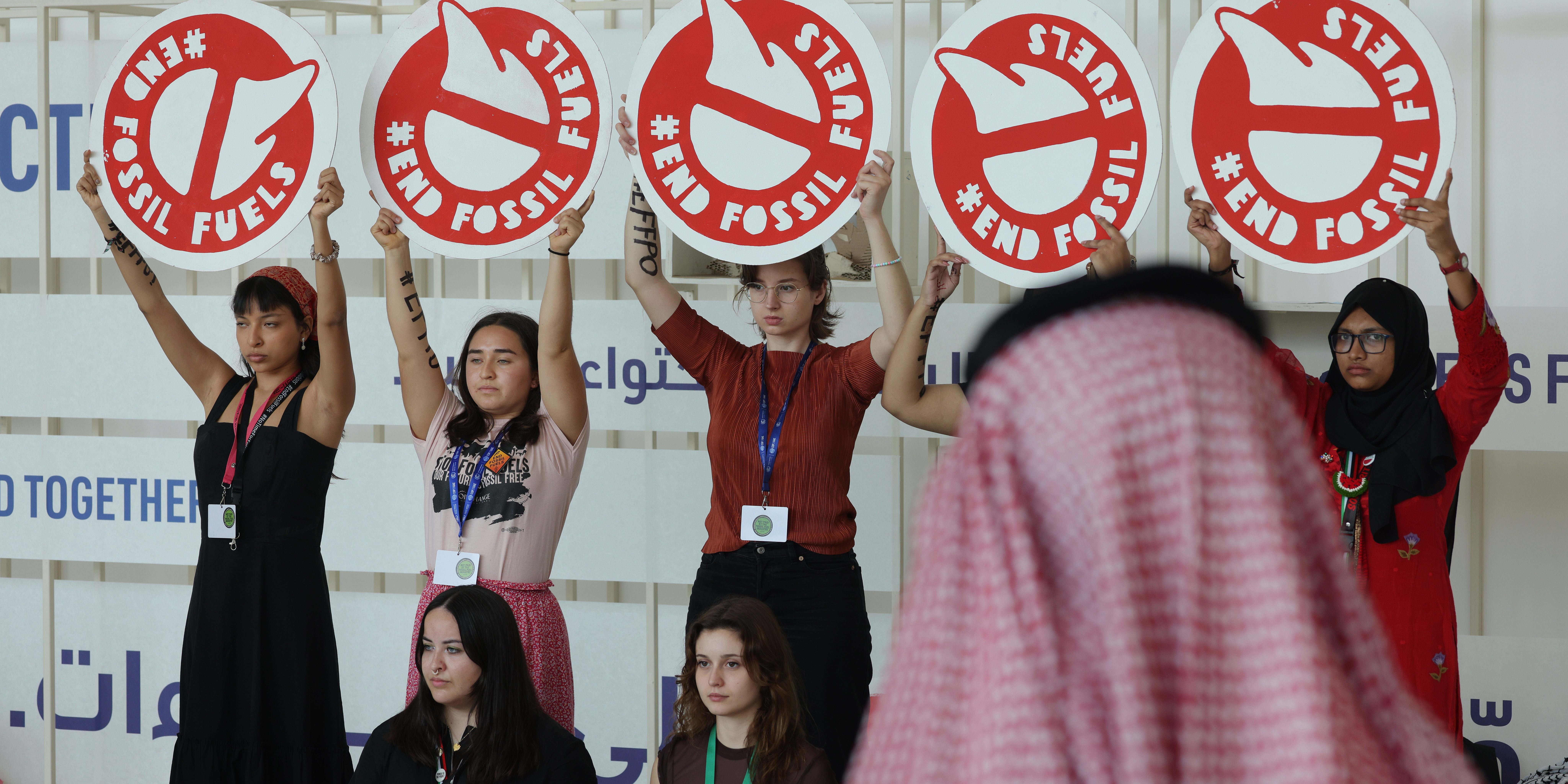
A man looks on as activists protest against fossil fuels on day ten of COP28 in Dubai on 10 December 2023. (Photo: Sean Gallup / Getty Images)
Unfortunately, but unsurprisingly – in a COP which is hosting close to 2,500 fossil fuel lobbyists – that is not happening. It cannot happen when time and time again, the voices of our communities are excluded from these spaces and from formal decision-making – confined to the fringes and outskirts with limitations placed on what can and can’t be said. All the while the fossil fuel lobbyists and government actors flirt their way ever closer to our demise.
We have to change this and find ways to centre restorative justice in these negotiations. We ask everyone who can to amplify and elevate the testimonies of land, human rights and environmental defenders across the global south. We ask you to support the development of frameworks and mechanisms which uphold the agency and aspirations of communities as we seek to phase out fossil fuels and power up renewables.
We ask you to find, in you, the same courage and commitment to justice that can be found in so many ordinary people who show extraordinary heart in the face of repression. We must all be unapologetic in our demand for justice and work to bring a complete end to the violence defenders are exposed to while preventing the criminalisation of those who peacefully assert their legitimate stake in our world. DM
Zaki Mamdoo is an organiser, campaigner, activist and human rights educator based in Johannesburg. Zaki currently serves as the coordinator of the StopEACOP Campaign and Coalition. Sarah Robyn Farrell is a climate justice organiser/campaigner, artist and writer with years of experience as an environmental communicator. She currently works with African Climate Alliance and Fossil Free South Africa. Stella Hertantyo is a communications coordinator with African Climate Alliance. She is also a slow fashion enthusiast and media multi-hyphenate working as a writer and podcast manager.



















 Become an Insider
Become an Insider
Comments - Please login in order to comment.